Microsoft brings SQL Server to Linux

The new Microsoft has placed an increased importance on the cloud, and with other companies following suit, reliance on server solutions has increased. Today the company announces that it is bringing SQL Server to Linux.
Both cloud and on-premises versions will be available, and the news has been welcomed by the likes of Red Hat and Canonical. Although the Linux port of SQL Server is not due to make an appearance until the middle of next year, a private preview version is being made available to testers from today.
New service helps organizations visualize and prioritize security threats
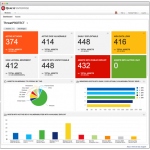
Active vulnerabilities can present a serious threat to organizations, which is why many are turning to intelligence solutions to spot and manage security issues.
Cloud-based security and compliance specialist Qualys is announcing a new service as part of its Cloud Platform. Called Qualys ThreatPROTECT, it provides customers with an interactive dashboard to help them understand security threats at-a-glance.
New platform offers endpoint protection for Linux servers

Most of the internet is powered by Linux servers, so it's not surprising that they’re increasingly a target for attack. In particular recent attacks have focussed on using compromised systems to distribute malware to other systems.
Many Linux systems rely on traditional signature-based threat detection which leaves them vulnerable to zero-day attacks. Endpoint security company SentinelOne is announcing a new solution aimed at protecting enterprise data centers and cloud providers from emerging threats that target Linux servers.
Canonical chooses Linux-friendly Dragonboard 410c as Ubuntu Core on ARM 64-bit reference
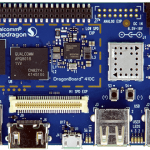
Linux is such a wonderful kernel for many reasons, but I find its adaptability to be the tops. You can get an operating system based on the kernel running on such a broad range of hardware -- something Microsoft can only dream about with its venerable Windows.
Even though Linux can run on damn-near anything, it is beneficial for developers to have a reference platform to use for creating. Of course, they can always expand from that jumping point. Today, Canonical announces that the Dragonboard 410c hardware will be the reference platform for Ubuntu Core on ARM 64-bit.
Canonical to release Snappy Ubuntu Core Linux image for Samsung ARTIK IoT platform
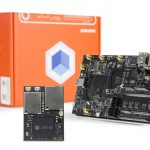
Ah, Linux. What can't the open source kernel do? For many projects, operating systems based on it have proven remarkably adaptable -- being made to work with countless hardware configurations. While Windows may remain king of the desktop -- for now -- Linux has its fingers in many pies for which Microsoft's offering is just too bloated. It remains to be seen if Windows 10 IoT will be embraced.
Today, Canonical announces that it will be releasing an Ubuntu Core image for Samsung's IoT-focused ARTIK platform (5 and 10 modules). What does this mean? Well, developers can now leverage one of the most popular Linux distributions on this hardware. This creates amazing potential for ARTIK.
Microsoft offers Red Hat Enterprise Linux in Azure Marketplace

Azure already supports a number of major Linux distributions, like CentOS and openSUSE, but Microsoft is now taking things one step further by offering Red Hat Enterprise Linux instances through the cloud platform's Marketplace.
This comes as a direct result of Microsoft's partnership with Red Hat, which, among other things, is meant to "help customers embrace hybrid cloud computing by providing greater choice and flexibility deploying Red Hat solutions" on the software giant's cloud platform.
Linux was not meant to be open source

The Linux community has a lot to shout about. In addition to a seemingly endless choice of distros to suit every taste and need, there's also the highly-prized security. This is helped to a large extent by the open source nature of Linux, but Linus Torvalds has revealed that being open source was not part of the original plan.
Torvalds made the revelation in a rare interview at the TED conference in Vancouver saying that Linux started off as a personal project that he intended to keep to himself. The computing landscape certainly would have panned out into something very different to that which we see today had he not made that crucial decision.
Canonical announces premium Linux-powered Meizu PRO 5 Ubuntu Edition smartphone

While I love iOS when it comes to mobile devices, Linux is my true love on the desktop. Android used to be my choice for mobile, but I jumped ship due to scary exploits and untimely (or nonexistent) OS updates. Linux should be synonymous with security, but Google's mobile OS has tainted that, sending me into Apple's loving arms.
Luckily, Google is not the only Linux player with mobile -- Canonical is still moving ahead with Ubuntu. True, it is a long shot to ever meet or exceed iOS or Android in market share, but fans of Linux and other open source software should pay attention. Today, Canonical announces the Meizu PRO 5 Ubuntu Edition -- a premium and luxurious smartphone.
Canonical releases Snappy Ubuntu Core Linux image for x86-based Intel NUC DE3815TY
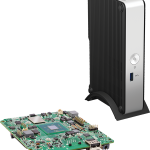
The Raspberry Pi is a game-changing computer. While it was primarily designed as a low-cost base on which students could learn to code, it has proven to be much more. Some consumers buy it for HTPC purposes, but more importantly, developers embrace the little computer for other projects, such as IoT.
Unfortunately for some developers, the ARM architecture and rather anemic performance make the Raspberry Pi a poor choice. While some consider ARM to be the future, I'm not so sure -- x86 has been surprisingly adaptable. Today, Canonical releases an Ubuntu Core image for the x86-based Intel NUC DE3815TY. Priced around $150, this NUC is more expensive than the Pi, but it is much more powerful too; a better choice for developers needing an x86 platform.
Korora 23 'Coral' Linux distro is finally here -- Fedora for the rest of us

When you decide to embrace Linux on the desktop, it can be quite exciting. There is a good chance you started your computing journey with Microsoft Windows, but now you want something different. While choosing the open source route can be a smart move, it can, unfortunately, be confusing too. What operating system should you pick?
Many people choose Ubuntu, which is a solid choice, but some people prefer others. Linus Torvalds, for instance, famously uses Fedora. While that operating system can be quite rewarding, setting it up can be a frustrating experience for those new to Linux. Enter Korora. This operating system takes the best of Fedora and mixes it with user-friendly software and pre-configured RPMFusion repositories. Version 23, code-named 'Coral', is now available for download.
Windows 10 phones home (A LOT) even with all reporting and telemetry disabled
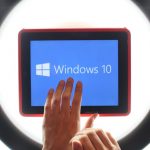
One computer user has become so disillusioned with Windows 10's spying features that he has been driven to using Linux Mint as his primary operating system. But Voat user CheesusCrust was curious to find out just how pervasive Microsoft's privacy invasion is. The results of his investigation are quite staggering.
Using a router kitted out with DD-WRT, and a copy of Windows 10 Enterprise installed in a virtual machine on his Linux laptop, he started by disabling every single one of the tracking and telemetry features found in the operating system. Eight hours later, 4,000 connection attempts to 93 different IP addresses were logged, with most of these IPs addresses being linked to Microsoft.
Canonical fulfills its Linux convergence vision with BQ Aquaris M10 Ubuntu Edition tablet
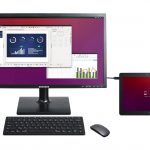
Convergence is all the rage in the technology industry nowadays and for good reason -- our handheld devices are insanely powerful. It makes sense to leverage a smartphone or tablet's processor for desktop computing. By connecting a monitor, mouse, and keyboard to the mobile device, it can serve as a full-fledged computer. Those with more hardcore computing needs, such as editing video, for example, may have to wait a while for more powerful handheld devices.
Microsoft has shown off its Continuum functionality, which turns a Windows 10 Mobile smartphone into a desktop, but because of shocking limitations, it really isn't ready for prime-time. Canonical has long been working on its own convergence plans with Ubuntu -- it is not copying Microsoft's. Quite frankly, it can be argued that the open source Linux kernel is a more adaptable base for such Swiss Army-like devices as Windows could be too bloated. Today, Canonical unveils the BQ Aquaris M10 Ubuntu Edition tablet which fulfills its Linux convergence vision. Not only can a user be productive with the tablet itself, but it can be connected to peripherals to create a full desktop experience.
ASUS VivoMini VC65 is world's smallest PC with four 2.5-inch drive bays
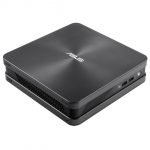
When people buy a new computer, there is a good chance they will be attracted to a diminutive offering. While the mini computer is not a new concept they can, quite often, be under-powered or limited in their expandability.
Enter the ASUS VivoMini VC65 Series. This new computer series is designed to not only save physical space, but with optional Intel Skylake processors, offer high performance too. Plus, more importantly for some, it can be configured to accommodate up to four 2.5 inch storage drives!
Bernie Sanders' campaign is right, Microsoft could hurt election -- open source is needed

When it comes to government agencies at all levels, and things like the voting process, I am a hardcore believer in open source being necessary. To truly know that votes are being counted correctly by machines, only open source would allow independent auditing. It will also help to prevent unknown backdoors in secure government computer systems.
Closed source technologies from companies like Microsoft could, in theory, contain backdoors or vulnerabilities that hackers and evildoers could exploit. Even worse, Microsoft or its employees could purposely alter voting software to influence outcomes. Am I saying the company is doing this? Not at all. But with closed source software, there is no way to know for sure. Now, Bernie Sanders' campaign is questioning Microsoft's technologies being used in Iowa Caucuses. You know what? They have a point.
Canonical and Oracle team up to boost enterprise cloud use
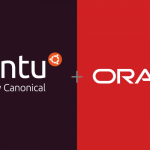
Canonical, the company behind Ubuntu Linux, has announced a collaboration with Oracle to make Ubuntu images available on Oracle Cloud.
Under the deal, Certified Ubuntu images will be available on the Oracle Cloud Marketplace, providing Oracle enterprise customers with increased choice and new and innovative ways to manage and scale their enterprise workloads, using the number one cloud operating system.
© 1998-2025 BetaNews, Inc. All Rights Reserved. Privacy Policy - Cookie Policy.